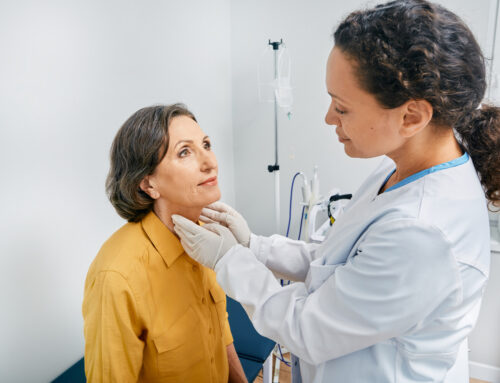Respiratory Syncytial Virus (RSV) is a common respiratory virus that can affect individuals of all ages. However, it is especially severe in infants and older adults, causing a range of respiratory symptoms from mild cold-like symptoms to severe respiratory distress. Understanding the signs, available treatments, and preventative measures is crucial in managing its impact on public health.
What is RSV?
RSV belongs to the family of viruses called Paramyxoviridae and is highly contagious. It primarily affects the lungs and respiratory tract, causing illnesses such as bronchiolitis and pneumonia. The virus spreads through respiratory droplets when an infected person coughs or sneezes, or by touching contaminated surfaces. The national RSV season typically starts in October, peaks in December, and lasts through April. However, in Florida, RSV can be observed throughout the year. It leads to more than 58,000 hospitalizations among children younger than 5 years old and stands as the primary cause of hospitalizations among children ages 1-3.
Signs and Symptoms of RSV:
- Cold-like symptoms: RSV often starts with symptoms resembling the common cold, including a runny nose, coughing, sneezing, and fever.
- Breathing difficulties: In more severe cases, RSV may result in challenges with breathing, wheezing, rapid and labored breaths, and, in severe cases, cyanosis (a bluish discoloration due to insufficient oxygen).
- Irritability and fatigue: Infants and young children infected with RSV might appear unusually irritable, fatigued, or less interested in feeding.
Diagnosis and Treatment:
A doctor can diagnose RSV based on symptoms and a physical examination. In some cases, tests like nasal swabs or blood tests may be conducted to confirm the diagnosis. As of now, there is not a specific antiviral treatment for RSV. However, management often involves:
- Symptomatic relief: Doctors might recommend over-the-counter pain relievers, fever reducers, maintaining adequate hydration to manage symptoms, and smaller more frequent feedings. For infants and toddlers, parents can use nasal saline and bulb suctioning as well as a cool mist humidifier in the room. Although the literature states that albuterol nebulization’s do not change the course of RSV infections, many physicians feel patients that have wheezing experience symptomatic relief from their wheezing associated with RSV bronchiolitis. This should be analyzed on a case-by-case basis and should be discussed with your physician.
- Hospitalization: Severe cases, especially in infants and older adults, may require hospitalization for oxygen support and monitoring.
Prevention and Vaccinations
Preventing RSV spread is critical, especially among infants and individuals with weakened immune systems. Some preventive measures include:
- Regular and thorough handwashing with soap and water, especially after contact with individuals who may be sick.
- Regularly disinfecting surfaces and objects that may harbor the virus can help prevent its spread.
- Refraining from touching the eyes, nose, and mouth with unwashed hands can prevent the introduction of the virus into the respiratory system.
Vaccination
There are now vaccinations against RSV that can reduce the spread of RSV disease in this country. These vaccines are recommended for pregnant women during RSV season, people 60 years and older, and young children.
- Vaccination against RSV for expectant mothers: Pfizer has released a vaccine called Abrysvo that is recommended to be administered to eligible pregnant women who are 32 to 36 weeks gestation during RSV season. Note that if a pregnant mother receives this vaccine at least 14 days prior to delivery, it will protect her newborn from severe RSV disease, and her newborn will not need to be vaccinated against RSV. This is the preferred method as your child will be protected at birth. The most common side effects of Abrysvo are injection site pain, headache, muscle pain, and nausea.
- Vaccination for infants and young children: Sanofi has released a vaccine called Beyfortus (Nirevimab). It is recommended to be given to all children less than 8 months of age who are entering their first RSV season. If your child is born during RSV season, it should be given in the first week of life (ideally during newborn hospitalization). This is not necessary if the mother received the Abrysvo vaccine during pregnancy. Beyfortus is also recommended for children 8 to 19 months of age who are entering their second RSV season and have certain conditions that would place them at increased risk for RSV disease. This would include chronic lung disease of prematurity, severe congenital heart disease, congenital pulmonary disease, cystic fibrosis, and immunodeficiencies.
Unfortunately, the pediatric version of the RSV vaccine is in short supply for the 2023-2024 RSV season as the manufacturer underestimated the demand. Therefore, it is recommended that doses be reserved for children who are at high risk for severe RSV disease. The most common side effects of Beyfortus are rash in the 14 days post-injection, fever, and local redness and swelling at the injection site.
Respiratory Syncytial Virus is a common and potentially severe respiratory illness, especially for vulnerable populations like infants and older adults. To help with symptoms and serious cases, it is important to practice good hygiene and consider vaccination. These steps play a key role in lowering the spread of RSV and lessening its impact on public health. Speak to your TopLine MD Alliance affiliated Pediatrician about preventative measures and the best course of treatment for your child.

Dr. Lawrence Bergman is a proud member of the TopLine MD Alliance practicing Pediatric Care in Palm Beach County.
The TopLine MD Alliance is an association of independent physicians and medical practice groups who are committed to providing a higher standard of healthcare services. The members of the TopLine MD Alliance have no legal or financial relationship with one another. The TopLine MD Alliance brand has no formal corporate, financial or legal ties to any of the affiliated physicians or practice groups.



